SANG KE
SEVEN POEMS
translated by Tiantian Yuan and Jennifer Fossenbell
One of Many Experiences in Harbin:
The Polish Theatre Piece The Hideout
Aunt Pola hides out in the basement;
where can you hide, pursued by inner terror?
Uncle Fright in a visor cap,
Uncle Dread with a pencil sharpener.
How many memories of dead souls can be hidden in photographs?
How many inked plaster photos can be hidden in the ground beneath Harbin?
Those who dare to compare their fear with Aunt Pola's
wear medical masks, observe the rising dough of terror.
To stay uninvolved is to stay off stage,
never to see oneself as an outsider, an actor, or the last straw.
Lights, cardboard, rope,
audience of iron wires, name-traders in hiding—
a six-year-old boy's grey hair and your bare ankles—
your snake of panic haunts the two-by-two meter cabinet.
The cave under Lake Xingkai is one-by-one meter
or smaller, even—stories can only be told by the living, bit by bit—
yes, the bouncing living;
only the surviving can describe how a person, a thing looked,
describe the blast of heartbeats at the knock on the door—
boom—yesterday's war arrives with another face.
Hidden in gunpowder smoke are secret stingers
and a private return trip, thorny and clouded.
Summer Day
Dizzy in the summer heat—
the cool-headed miners had every reason to strike, to submit
their resignation letters on the tyranny of summer
and the federal warmth of winter—
but wait, dropping praise and judgment is only the knack
of an imitator, a macaw who stutters—
so blurted the deputy mayor in a VIP room, almost oblivious to
the possibility that his own life plan may also be at risk of internal erosion—
organ dysfunction, disease,
and loneliness is a non-poisonous snake
that would pierce his pinkish throat all the same.
The cool moments are reluctant to last,
as in the mist-headed Qing Dynasty and sweat-blooded Afghanistan.
He saw the omen of autumn in your wallet—
what is it? — a heart monitor is not a security monitor,
and India is not Du Fu.
Rat-Hole
I return to my rat-hole,
somewhere dark, wet, but quiet—
no intrusive grandeur, no ironware
that exposes the cold embrace of society.
Compared to a garden, this place is far from ideal—
it is terrible, its walls colonized by dark green mold,
its unspeakable odor haunting my nostrils,
intense like burning rubber,
yet it is quiet, no intruders,
no phone calls peering at my inner echoes—
so that I can, without fear, protest against the dark red lightbulb above my head,
I can, without fear, refuse to look, listen, or smell—
poison disguised as wafer cookies.
I return to my rat-hole
to invite my sharp teeth to read sweet intelligence reports,
to invite my dull eyes to read fleeing shadows—
half a second slower than my breathing.
Security Metal Detector
I can see through the glass door a security metal detector
and its red and blue signs flashing forbidden and permitted.
Those who clothe their minds in uniform smell like tobacco and editorials,
while those who don't breathe out inaudible sighs.
Yet they all have their index fingers on the ID scanners.
Yet they all get squeezed between the railings.
The metallic steel doors veil the Mitsubishi elevator, loaded with cigarette ash and zeal;
conversation is kept to civilities and the scope of entertainment news.
No pig is willing to spend its whole life in a pigpen.
No one is willing to smile behind bars and show love to the inspectors.
The newly installed cameras identify imposters and idlers;
time, boiling over, pours into the round-faced timers.
A sighing violin patiently lowers its voice and locks its scratching away in a broom closet.
What it records in the dark is like the gold filigree inlaid in a dagger fingered by its collector;
it is reluctant to reveal the crammed public housing as a wasteland,
or to light its beacon alone for a scar-ignited revolution.
The river of vitality is about to vanish into the night's shore;
it was long ago that the ending placed a pretty hole before the future's eyelashes.
A Fine Poem
Is it possible to write a fine poem, like the title above,
like Elytis's Greece and a sun-lit golden beach?
Ironware and cold looks, covered by the scent of bergamot and lavender,
win from your slightly bulging white parts and cross-collared, knot-buttoned ease
some secret, passionate allies—the falling, dark correspondences—
no more than others' slanders, no more than the truth
prophesized on their puffy faces—scapegoating in the same sinking boat—
they do not fit into a fine poem; they are just reflections on frosted glass.
My job is to take note of your pure, red being.
My job is to add notes to the red nightmare outside your pure red being.
Red violins and red banners belong to different households.
Your figure tells of summertime, while in winter's rustlings their shifty faces
fade above the horizon like a comet's tail burning short.
Our fires warm and delight each other, and meet in a dream.
The Button Fly Boundary
Stones are the buttons of wilderness—
a statement whose legitimacy is acquired through landscape paintings,
the paintings produced by The Nutcracker and The Red Detachment of Women crews—behold,
what do the buttons stand for, sketched all over the hills?
The eroticism of a kitchen is an art form
ignored by the dark art of Japanese cooking.
The stones monitor every big-bellied crow
passing with its fly buttoned tight.
What draws the boundary of fury under their surveillance—
the electric fence or the little mustache who unleashes his anger—
the congressmen of the sculpture department merely gape.
The allies sent by the mirror, also gaping, make even the wigs think there aren't enough strokes in the characters for shame,
while the audience outside the mirror see that they too are included in this exhibition, which actually proves that
the saying "friends are foes; foes friends"
might be an essential piece of truth
lost in its Chinese translation.
To use our body, we fully rely on steel rolling techniques;
fitting fishing boats with cigarette cannons
also fails to whitewash our shortcuts in romance.
I want to tell you the role yoghurt plays
in wasting life, and that the catalyst for leaving traces
could be just some color.
Revolutions shock us; counterrevolutions surprise us.
Refugee's sensitivity to borders
is much deeper than your attachment to dust and pollen.
Modern life is larger than editing articles for a newspaper
or editing gossip posts on a smartphone,
larger than the banal sense of helplessness and doomsday revelries.
Where is your boundary? What on earth are button flies?
The conservatives plot reforms behind a John Lennon mask.
One-dimensional rain falls in a two-dimensional puzzle box.
My testing of pain
faces a crescent moon in crescendo.
I Can Separate My Soul from My Body
This morning, my soul managed to separate from my body.
Not like the movies. In a movie, a spirit floats up, shadow-like from the sleeping flesh—
but my case was this: I woke up from sleep suddenly, sitting up in bed.
To be precise, it was my body that sat in my bed; my soul was left in a dream.
Whatever my wife tried, I couldn't hear her. Listening is what a soul does,
while the body's ears, without the nature of the soul, become merely an unplugged record player.
I sat there, perplexed; my myopic eyes, without glasses,
were especially huge and lost. That moment, as I would only understand later,
was the moment of soul-body separation. Everyone has had such a moment,
when the body wakes and the soul remains in its dream
to live a life with the people there, to share words and enjoy time,
even to debate fiercely in English, more fluent than in waking,
to be intimate with loved ones, to burn ethics and taboos to gray ashes,
to sometimes face unprecedented nuclear disasters,
or to explore the future of human society as in science fiction.
Joy and pain are both multiplied in intensity.
Yet I can soar, unafraid even way up in the sky,
except there's a slight chill up here, and it makes my non-dreaming body shudder.

author’s note
Apart from sharing the year in which they were written, these poems may appear to have little in common. Any other connections between them might be more hidden, and I hope that a perceptive reader will be able to discern them, and also that others—say, certain people in positions of power—will see them, but remain in the dark. Or, to put it in less cryptically: everything I want to say, I have written into these poems. Prose, in the face of poetry, has time and time again found itself paler in comparison.
